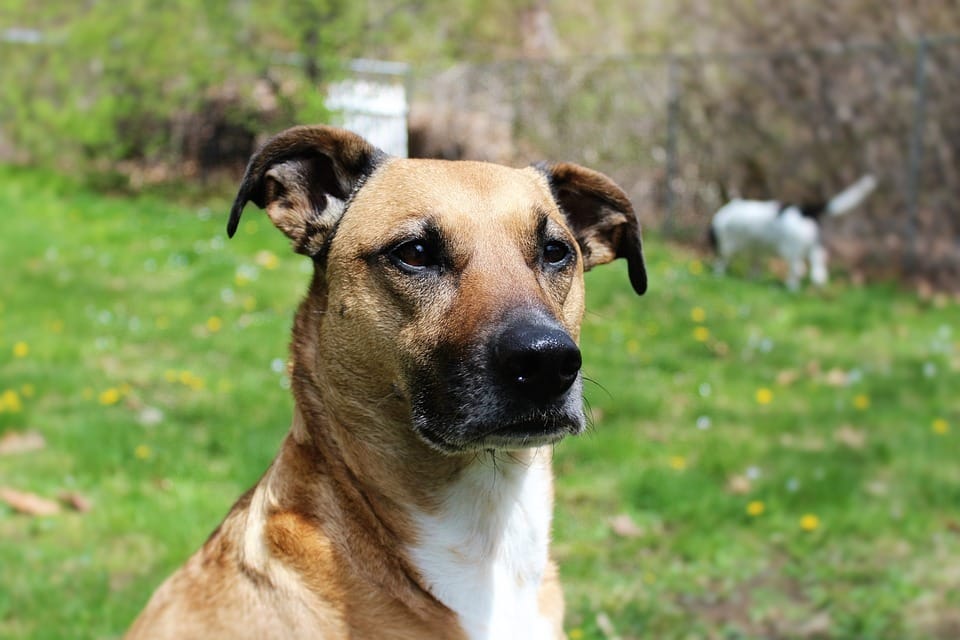- Your Pet's Wellbeing
- Posts
- Why Do Dogs Have Wet Noses?
Why Do Dogs Have Wet Noses?
You Might Be Surprised!
A dog’s wet net nose isn’t just an adorable feature of dogs, but it also serves a purpose. There is a reason why dogs have wet noses and it’s not just by nature’s design or part of their quirkiness. A dog’s moist nose plays an important role in their health, senses, navigation and communication.

Let’s dive into the many reasons why dogs have wet noses:
The Science Behind Wet Dog Noses
Dogs have wet noses because of mucus production and frequent licking. The thin layer of mucus that coats their nose helps trap scent particles, which allows dogs to process smells more effectively.
Since a dog’s sense of smell is tens of thousands of times stronger than a human’s, having a wet nose gives them a sensory edge. When your dog licks their nose, they essentially “reset” their sense of smell and help dissolve new scents into that mucus layer for better detection.
Cooling Mechanism for Body Temperature
Another reason dogs have wet noses is to help regulate their body temperature. Dogs don’t sweat the same way humans do. Instead, they rely on panting and a little evaporation from their noses to release heat. A wet nose allows a dog to have that extra bit of cooling, which can be especially helpful on warm days or after exercise.
Beyond just picking up scents from the air, a dog's wet nose also helps them determine the direction of a smell. The moisture on their nose allows them to literally taste the air, or rather, to collect scent particles that cling to their wet noses. This ability to sample scent from the air and the ground helps them track and locate the origin of a smell with incredible accuracy.
Helps Dogs Navigate Their World
A wet nose doesn’t just make dogs better at smelling, as it also helps them navigate their world. By picking up and analyzing scent particles in the air and on surfaces, dogs can map out their surroundings in ways humans can’t imagine. Their moist noses allow them to follow scent trails, detect subtle environmental changes, and even locate people or animals at a distance.
This incredible ability is why dogs are often trained as search-and-rescue partners, tracking dogs, or service animals. Their wet noses act as a built-in GPS, guiding them through the world with confidence.
Communication Through Wet Noses
Dogs also use their noses as a form of communication. When they nuzzle you with a cool, wet nose, it can be a sign of affection and bonding. That little touch may leave a damp spot on your arm, but it’s one of the ways your dog interacts with the world, and specifically with you. A wet nose can even carry their scent to other dogs, working as part of their social interactions.
What Does It Mean if a Dog Has a Dry Nose?
Many pet parents worry when they notice their dog’s nose feels dry instead of wet. But a dog with a dry nose isn’t always sick. Just like humans can have drier skin at certain times, dogs’ noses can naturally become less moist. This might happen after a nap, when they’ve been in a warm room, or after exposure to the sun. These are usually harmless, temporary changes.
However, a persistently dry, cracked, or crusty nose can sometimes indicate health concerns. Dehydration, allergies, sunburn, or certain medical conditions can all affect your dog’s nose moisture. If your dog’s dry nose comes with other symptoms such as lethargy, changes in appetite, or discharge, than it’s worth consulting your veterinarian to rule out any underlying issues.
Should You Be Concerned About Nose Moisture?
In most cases, a dog’s nose will naturally fluctuate between wet and dry throughout the day. And even the change of seasons. The key is to look at the whole picture: Is your dog acting normally, eating well, and staying active? If so, a dry nose on its own is usually not a cause for alarm. But if you notice consistent dryness paired with other unusual behaviors, it’s smart to have your vet check things out.
Final Thoughts
So, why do dogs have wet noses? The answer lies in their incredible sense of smell, their ability to regulate body temperature, and even their social communication. A wet nose is perfectly normal, and often a sign of a healthy, curious pup.
A dry nose, on the other hand, doesn’t always mean something is wrong, but it’s important to pay attention to patterns and overall health. By understanding your dog’s nose better, you can feel more confident about what’s normal and when to seek veterinary advice.